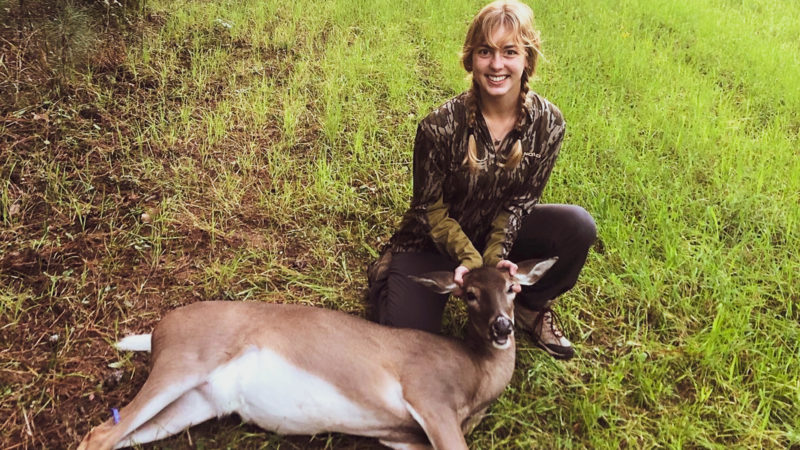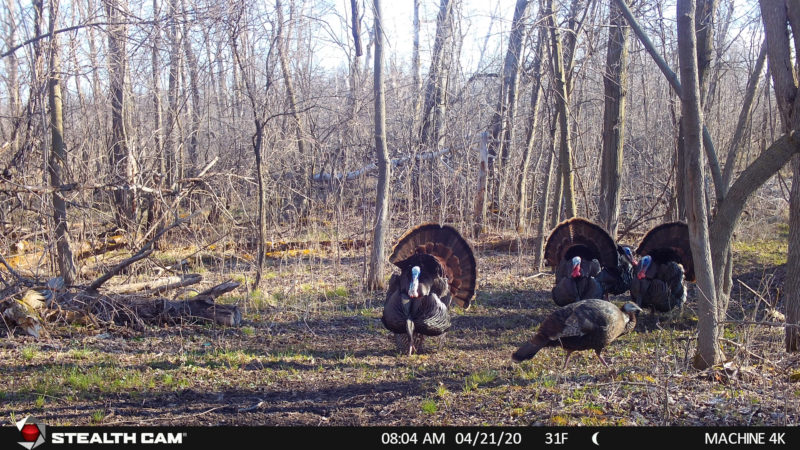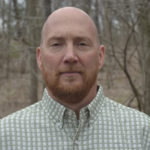I run a pretty active collegiate new hunter program out of my office here at LSU. For about the last decade, each year my partners and I run around 80 college students studying natural resources through our program, introducing them to hunting as a mechanism for wildlife conservation.
For those of us who are already hunters, we understand the stages of hunting that hunters go through, which, briefly defined are 1) Introduction and Shooting, 2) Limiting Out, 3) Selectivity or Trophy, 4) Method, and 5) Sportsman stages. I consider myself to be at the sportsman stage (and likely a bit past) as my joy of hunting is equal whether I harvest, or whether I support others learning to harvest.
I have learned through the collegiate hunting program that there is no more sacred bond than that of the hunter and the hunted, and that reduction of a publicly owned resource to private possession is an activity that requires the utmost respect and responsibility from the hunting community.

At LSU, and at hunter education programs across the nation, the concept of Fair Chase, as championed by the Boone and Crockett Club, is the ethical, sportsmanlike, and lawful pursuit of free-ranging wild game without any unfair or improper advantage. But what is ethics when it comes to hunting?
Ethics is commonly defined as the principles that govern behavior or conduct during an activity. So, how does our behavior and conduct come into play when pursuing hunting activities? One can read stories about Teddy Roosevelt shooting turkeys off of a roost at night or coursing turkeys with greyhounds.
Today no one would dream of shooting turkeys off of a roost at night as it is both against the law, and our commonly reached hunter ethics now dissuades us from that approach to harvest. But, at the time, was a night roost shoot considered unethical? What about our use of technology and how it has advanced our abilities to see, monitor, and lure the wild game we are interested in harvesting? The decoys for waterfowl, doves, and turkey hunting are so accurate when it comes to color, shape, size, and even movements that one would be hard pressed to tell the difference between what is a decoy and what is a wild bird.
Digital trail cameras provide a date-time stamped record of visitations by wildlife to food plots and pinch points on the landscape, up to and including sending us pictures to our cell phones such that we know exactly when and where to expect game to show up—but is this unethical?
Our North American Model of Wildlife Conservation values the resource, and the availability of the resource to society as primary tenets. Respecting wildlife while hunting, but not attempting to get an unfair advantage is paramount, as those individuals that escape harvest represent the resources carried over year to year.

I took my daughter turkey hunting with me a few times this past year, and we were sitting in the ground blind one morning watching the sun rise and a nice adult male wild turkey walked across the field towards my female decoy and stopped to strut about 50 yards from the blind. My daughter, barely able to contain her excitement, waited patiently for a shot that never came, as the turkey remained 50 yards away and never got closer. When we were driving home she asked me why I had not shot that bird?
I explained to her that that bird won the day because her father’s hunting ethics is to not shoot at any time I might wound a bird. Now, readers will surely say that a 50 yard shot is, as one of my buddies said, a chip shot. That may be true, but on that morning, my effective range was not strictly a decision of harvest, but also a showing of my hunting ethics to my daughter. My hope is that when she is independently hunting, she will build her own ethical framework upon the foundation I have laid.
I don’t attempt to apply my hunting ethics to anyone, nor do I want someone to apply their hunting ethics to me. However, I consider myself a sportsman, and as a sportsman, harvest is part of the goal, but attaining that goal is not the only way to be a sportsman. It is this same benefit to the resource that we provide anyone who hunts with us here at LSU, in that how we approach the hunting and harvest of wild game will likely influence how they approach the sport of hunting and harvest in the future.
Thus, as the stewards of the hunting resource, the ethics that we practice can trickle down through the generations. As such, my approach to hunting and hunter education is that one should always show the willingness to not harvest, and enjoy the moment, and by letting those individuals we are chasing pass on by, assist in ensuring sustainability for the wildlife we all enjoy for future generations.
Bret Collier via The Hunting Wire

 By
By 



